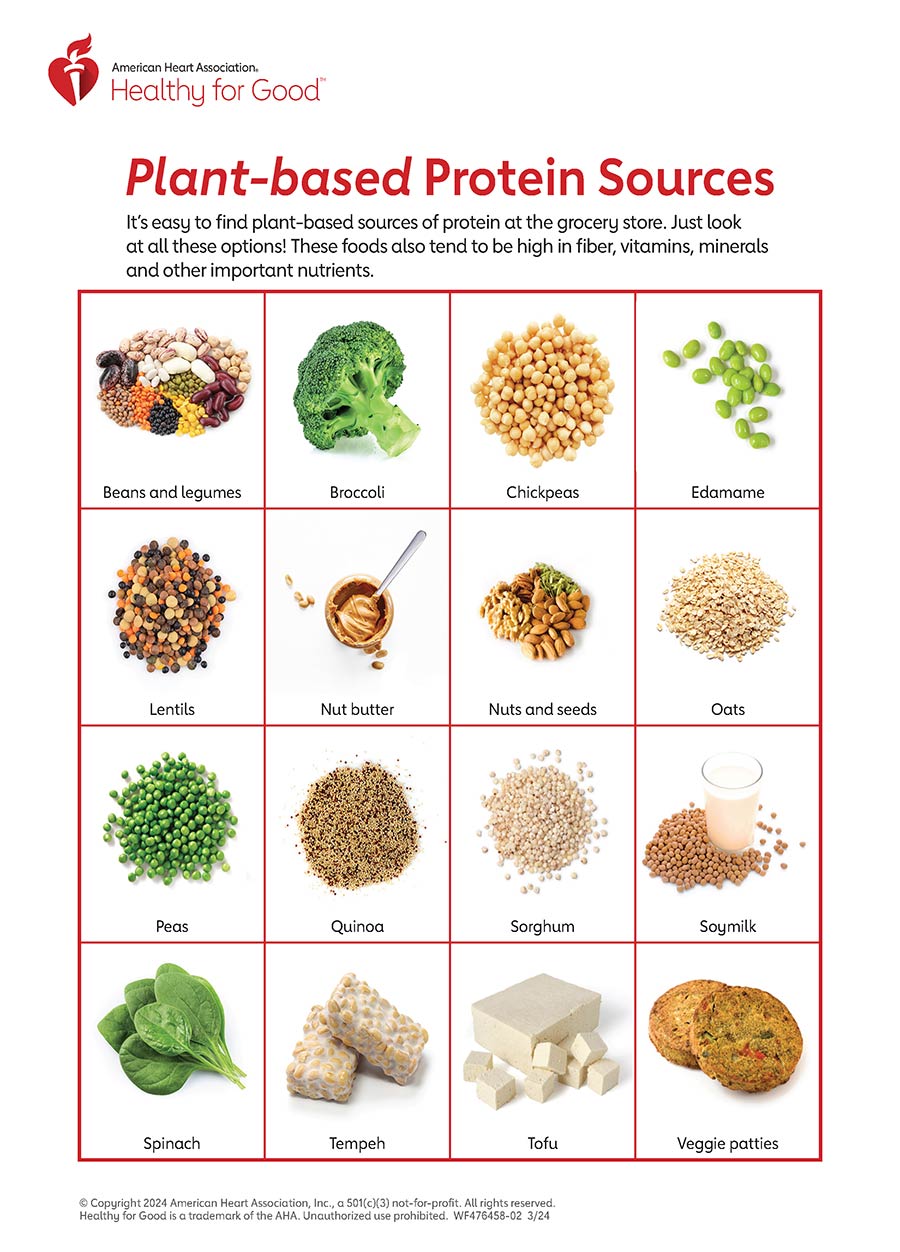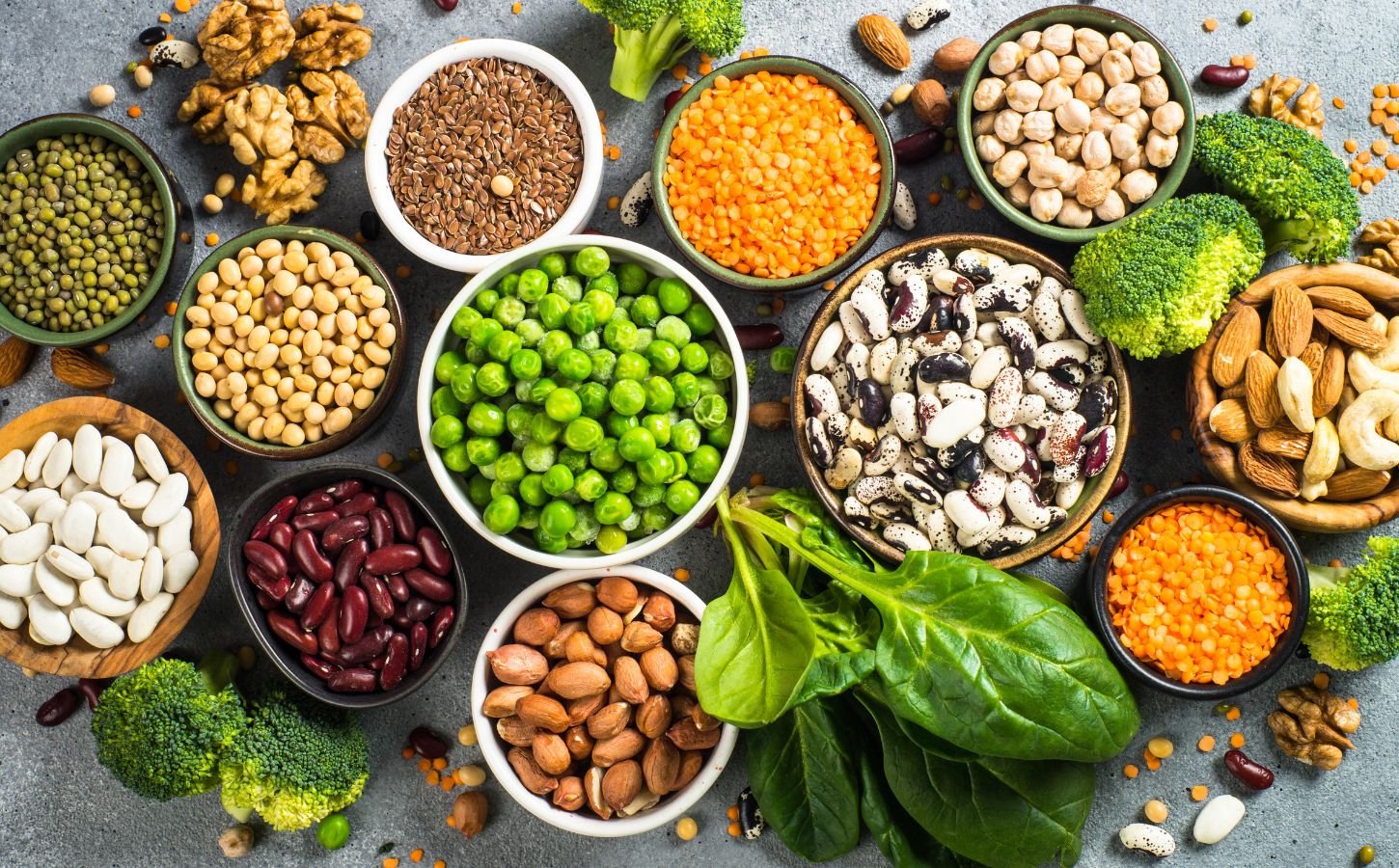“`html
The Power of plants: A Comprehensive Guide to Plant-Based Protein
The Power of Plants: A Comprehensive Guide to Plant-Based Protein
In an era where health consciousness and environmental sustainability are paramount, plant-based diets have surged in popularity. A cornerstone of these diets is plant-based protein, offering a compelling alternative to animal-derived sources. This comprehensive guide delves into the world of plant-based protein, exploring its benefits, diverse sources, and practical tips for incorporating it into your daily life.
The Rise of Plant-Based Protein
The growing recognition of the environmental impact of animal agriculture, coupled with increasing concerns about personal health, has fueled the demand for plant-based protein. Plant-based diets are associated with a reduced risk of chronic diseases, including heart disease, type 2 diabetes, and certain cancers. Moreover, they offer a more sustainable approach to food production, minimizing greenhouse gas emissions and resource depletion.
Why Plant-Based Protein Matters

Protein is an essential macronutrient, crucial for building and repairing tissues, producing enzymes and hormones, and supporting overall bodily function. While animal products have traditionally been the primary protein source, plants offer a wealth of protein-rich options that are both nutritious and versatile.
Health Benefits of Plant-Based Protein
Plant-based protein often comes packaged with a host of additional health benefits. These include:
Lower Saturated Fat and Cholesterol
Plant-based proteins are generally lower in saturated fat and cholesterol compared to animal proteins, contributing to improved cardiovascular health.
Increased Fiber Intake
Many plant-based protein sources are rich in dietary fiber, which promotes digestive health, regulates blood sugar levels, and aids in weight management.
Rich in Vitamins and Minerals

Plant-based foods are packed with essential vitamins and minerals, including iron, zinc, and B vitamins, supporting overall well-being.
Antioxidant Properties
Many plant-based proteins contain antioxidants, which help protect cells from damage caused by free radicals, reducing the risk of chronic diseases.
Diverse Sources of Plant-Based Protein
The world of plant-based protein is vast and diverse, offering a plethora of options to suit various dietary preferences and culinary styles. Here are some key sources:
Legumes: The Protein Powerhouses
Legumes, including beans, lentils, and peas, are nutritional powerhouses, packed with protein, fiber, and essential nutrients. They are incredibly versatile and can be incorporated into a wide range of dishes, from soups and stews to salads and dips.
Soy Products: A Complete Protein Source
Soy products, such as tofu, tempeh, and edamame, are unique in that they provide all nine essential amino acids, making them a complete protein source. They are also rich in iron, calcium, and other vital nutrients.
Nuts and Seeds: Nutrient-Dense Snacks
Nuts and seeds, including almonds, walnuts, chia seeds, and flaxseeds, are excellent sources of protein, healthy fats, and fiber. They make for convenient snacks and can be added to smoothies, salads, and baked goods.
Grains: A Staple Source of Protein
Grains, such as quinoa, brown rice, and oats, contribute to overall protein intake and provide essential carbohydrates for energy. Quinoa, in particular, is a complete protein source.
Vegetables: Hidden Protein Sources
While vegetables may not be the first thing that comes to mind when thinking about protein, certain vegetables, such as broccoli, spinach, and Brussels sprouts, contain significant amounts of protein.
Plant-Based Protein Powders: Convenient Supplements
Plant-based protein powders, derived from sources like pea, rice, and soy, offer a convenient way to boost protein intake, especially for athletes and those with active lifestyles.
Incorporating Plant-Based Protein into Your Diet
Transitioning to a plant-based diet or simply increasing plant-based protein intake can be a seamless and enjoyable process. Here are some practical tips:
Start with Simple Swaps
Begin by replacing animal protein in a few meals each week with plant-based alternatives. For example, swap ground beef with lentils in a chili or use tofu in a stir-fry.
Explore Diverse Recipes
Experiment with new recipes and cuisines that feature plant-based protein sources. Explore the culinary traditions of cultures that emphasize plant-based diets, such as Indian, Mediterranean, and Asian cuisines.
Plan Your Meals
Meal planning can help ensure you are meeting your protein needs and maintaining a balanced diet. Plan your meals ahead of time, incorporating a variety of plant-based protein sources.
Read Food Labels
Pay attention to food labels to identify hidden sources of protein and assess the overall nutritional content of packaged foods.
Combine Protein Sources
Combine different plant-based protein sources to ensure you are getting all the essential amino acids. For example, pairing grains with legumes creates a complete protein.
Consider Supplements
If you have specific dietary needs or are struggling to meet your protein requirements, consider incorporating plant-based protein powders into your diet.
Addressing Common Concerns
Some individuals may have concerns about the adequacy of plant-based protein. Here are some common questions and answers:
Can I Get Enough Protein on a Plant-Based Diet?
Yes, absolutely. A well-planned plant-based diet can provide sufficient protein for all individuals, including athletes and those with increased protein needs. By consuming a variety of plant-based protein sources, you can ensure you are meeting your daily protein requirements.
Do I Need to Worry About Amino Acid Deficiencies?
While some plant-based proteins may be incomplete, meaning they lack one or more essential amino acids, this is easily addressed by consuming a variety of protein sources throughout the day. Combining grains with legumes, for example, creates a complete protein profile.
Is Plant-Based Protein Suitable for Athletes?
Yes, plant-based protein is suitable for athletes. Many successful athletes have thrived on plant-based diets, demonstrating that it can support optimal athletic performance. Plant-based protein powders can be particularly beneficial for athletes with increased protein needs.
The Environmental Impact of Plant-Based Protein
In addition to its health benefits, plant-based protein offers a more sustainable approach to food production. Animal agriculture is a major contributor to greenhouse gas emissions, deforestation, and water pollution. Shifting towards plant-based diets can significantly reduce our environmental footprint.
Reduced Greenhouse Gas Emissions
Plant-based protein production generates significantly fewer greenhouse gas emissions compared to animal protein production. Reducing meat consumption can play a crucial role in mitigating climate change.
Lower Water Consumption
Animal agriculture requires vast amounts of water for feed production and livestock maintenance. Plant-based protein production, on the other hand, requires significantly less water, conserving this precious resource.
Reduced Land Use
Animal agriculture requires extensive land for grazing and feed production. Shifting towards plant-based diets can free up land for reforestation and other environmentally beneficial purposes.
Conclusion
Plant-based protein offers a compelling alternative to animal-derived sources, providing a wealth of health benefits and a more sustainable approach to food production. By incorporating diverse plant-based protein sources into your diet, you can nourish your body, support your well-being, and contribute to a healthier planet. Embrace the power of plants and discover the delicious and nutritious world of plant-based protein.
“`



